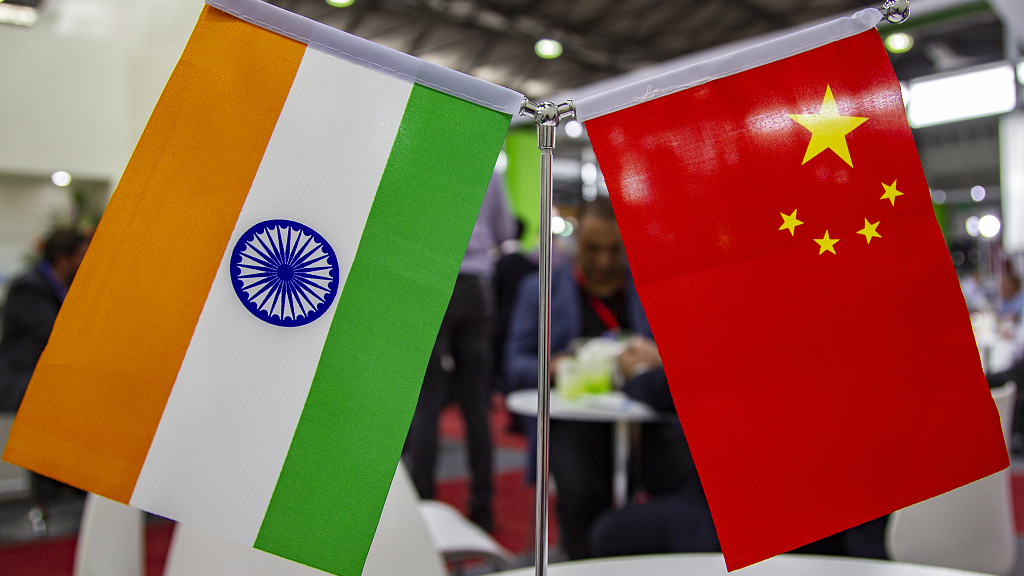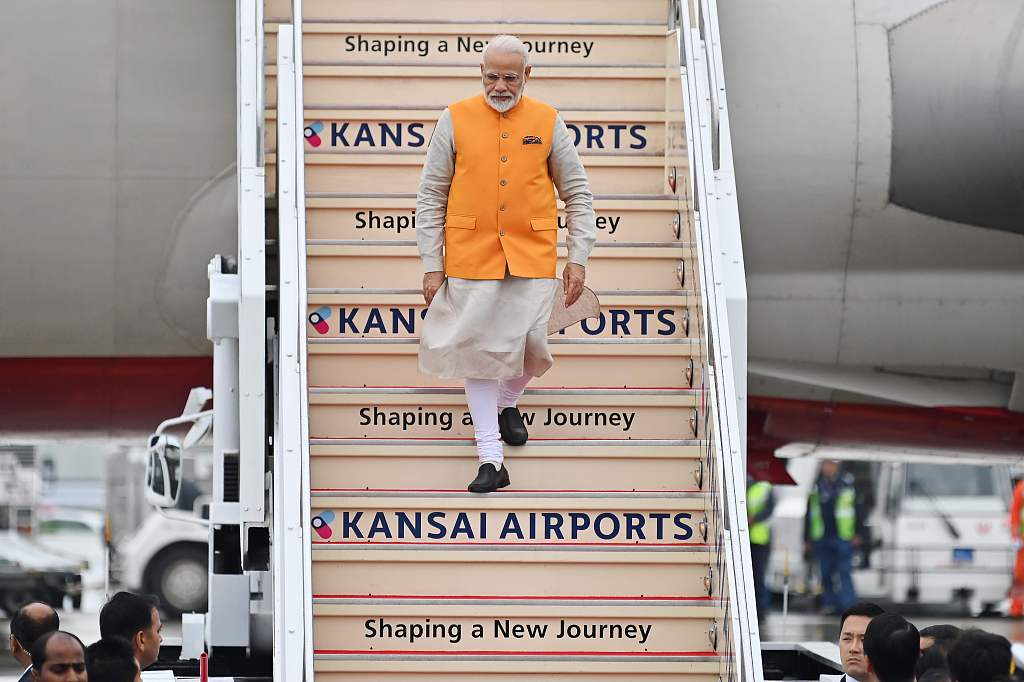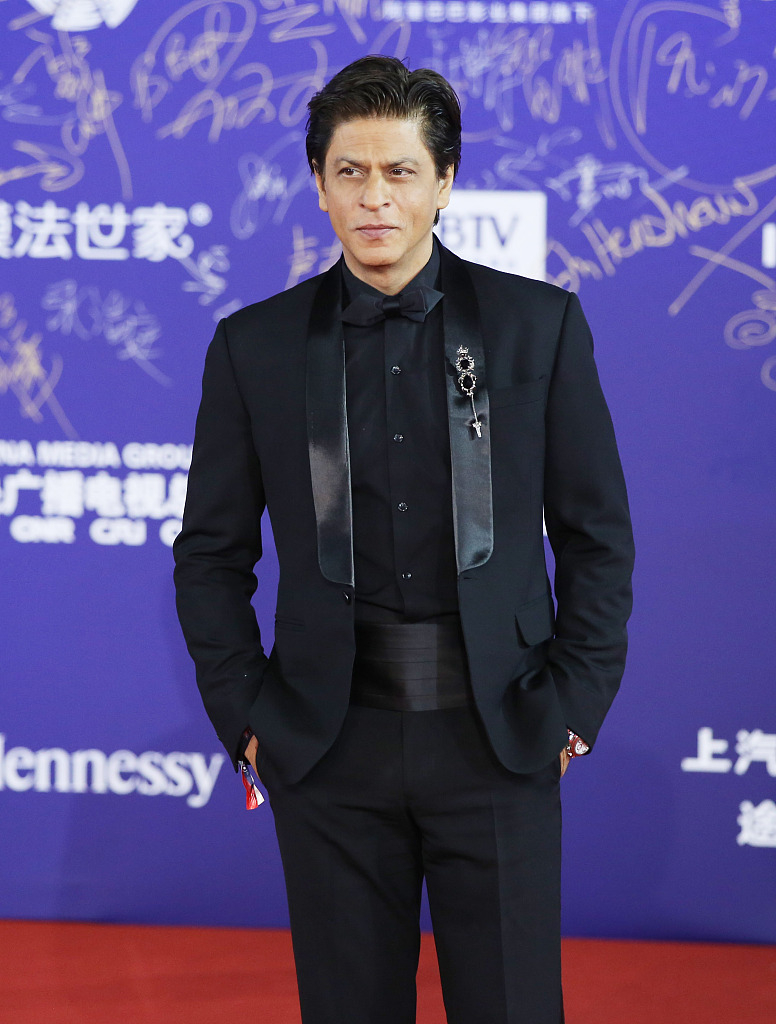

Editor's note: Rabi Sankar Bosu, an Indian freelance contributor to Chinese media outlets, writes about Chinese politics, social and cultural issues, and China-India relations with special interest on the Belt and Road Initiative. The article reflects the author's opinion, and not necessarily the views of CGTN.
Japan will host the 14th summit of the Group of 20 (G20) in the port city Osaka from June 28 to 29 this week in its capacity as chair of the world's 20 most powerful nations with 85 percent of the world's GDP, that's around three-quarters of global trade and two-thirds of the world's population.
“Human-centered future society” is the theme Japan has chosen which mirrors the implementation of previous commitments flowing from the past G20 summits. It is hoped that the Osaka Summit will bring together the leaders of the influential bloc, sending a signal of unity in the fight against protectionism with a promise of prosperity and well-being.
Chinese President Xi Jinping, U.S. President Donald Trump, Russian President Vladimir Putin, and Indian Prime Minister Narendra Modi along with other prominent members of major economies will attend the two-day annual summit meeting at the invitation of Japanese Prime Minister Shinzo Abe. Quite expectedly, the eyes of the world will be on the premier forum for international economic cooperation again as President Xi Jinping rightly noted: “The mechanism belongs not only to its members but also to the entire world.”

Indian Prime Minister Narendra Modi disembarks from a plane as he arrives at Kansai Airport in Osaka, Japan June 27, 2019. /VCG Photo
As host, Prime Minister Abe has set the theme consisted of the four major global agendas: global economy: trade and investment; innovation in the digital economy and artificial intelligence; addressing inequalities and realizing and inclusive sustainable world; and climate change, energy and environment. These agenda items resonate well with the G20's Hangzhou Summit in 2016, chaired by President Xi, which also emphasized the importance of a coordinated innovation drive to address the prolonged sluggishness of the global economy.
This week's G20 summit comes at a time when rising protectionism as well as swirling U.S.-China trade conflict and Middle East tensions pose a new challenge to the spirit of economic globalization. However, countries in Europe, Africa, and Latin America have been turning increasingly towards Asia – to China, India and Japan – when it comes to free trade or even climate protection since Donald Trump took over the White House as U.S. President.
While all eyes will be fixed on the prime meeting between President Trump and President Xi since the trade war 2.0 was unleashed between the world's largest economies, the meeting between Prime Minister Modi and President Xi on the sidelines of the 14th G20 summit will also be closely watched. Modi's meeting with Xi, the second bilateral engagement since his re-election last May, is set to attract a lot of attention amid strengthening of strategic ties between the two countries. The two leaders last met on the margins of the SCO Summit in Bishkek on June 13 this month, in which they emphasized the need to maintain the "momentum" generated by their two-day informal summit in the Chinese city of Wuhan in April last year.
As two big neighboring countries, China and India are members of the G20 and BRICS which groups Brazil, Russia, India, China and South Africa. Both China and India are major rising forces among BRICS countries. The two countries are the second and sixth largest world economies, respectively, ranking the second and first in terms of growth rate, and first and third in terms of contribution to world economic growth. Both countries are now members of basically all international organizations and institutions and significant investors in almost all regions of the world.

Famous Indian actor Shahrukh Khan appears on the closing ceremony of Beijing International Film Festival in Beijing, April 20, 2019. /VCG Photo
As such, during the Modi-Xi G20 parleys, whether it's a formal or informal bilateral discussion, it is expected that the two leaders should forge a united front against President Trump's trade protectionist policies and unilateralism using tariffs as a weapon. It should be noted here that China and the U.S. have been in an escalating conflict over trade for the past year.
The scope of the battle has expanded as on May 10, President Trump directed his administration to hike tariffs to 25 percent on Chinese goods that accounted for 200 billion U.S. dollars' worth in imports last year. He also indicated that he would eventually move to place that same levy on all 540 billion U.S. dollars of annual Chinese imports while tightening trade restrictions on Chinese telecom giant Huawei.
On the other hand, India is also facing trade frictions with the U.S. especially over the termination of its designation as a "beneficiary developing country" under the Generalized System of Preferences (GSP), ending zero-duty access for 6.3 billion U.S. dollars of Indian goods. India's removal from the GSP heralds the beginning of America's deliberate strategy to force open Indian markets to American goods.
The economic and commercial engagement between India and China constitutes a major component of the bilateral relations with bilateral trade crossing 95 billion U.S. dollars last year and set to cross 100 billion U.S. dollars this year. It's worth recalling here that during the sidelines meeting of SCO Leaders' Summit in June last year in Qingdao, President Xi suggested to PM Modi that the two countries set up a new bilateral trade target of 100 billion U.S. dollars by 2020.
Founded in 1999 to give developing countries a more powerful voice in the global economy, the mechanism of the G20 summit has become an important platform for global economic cooperation. Surely this week's G20 summit will be an opportunity for both India and China to play a more constructive role in pushing forward the opening of the world economy. It is important for the world's two largest developing countries to speak common voices in the multilateral arena in order to make globalization better benefit all countries and peoples.
(If you want to contribute and have specific expertise, please contact us at opinions@cgtn.com.)

Copyright © 2018 CGTN. Beijing ICP prepared NO.16065310-3
Copyright © 2018 CGTN. Beijing ICP prepared NO.16065310-3